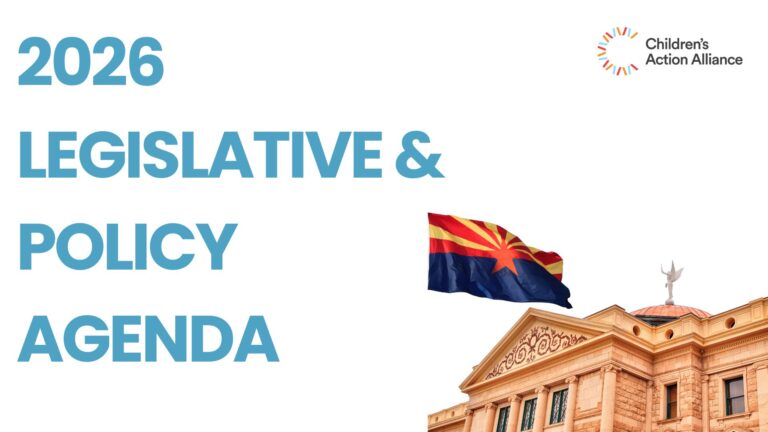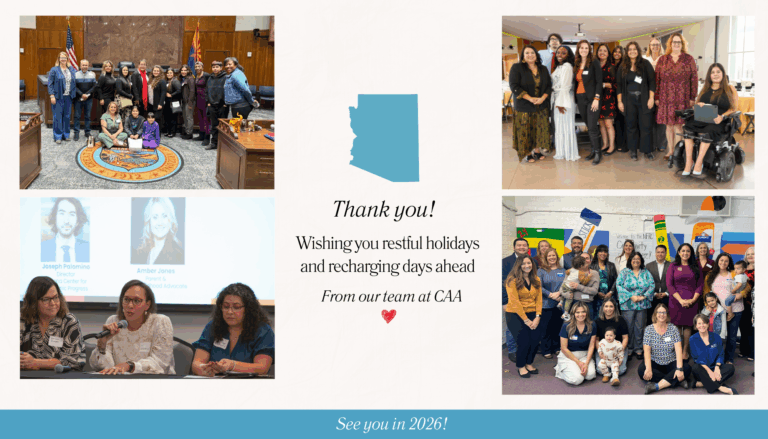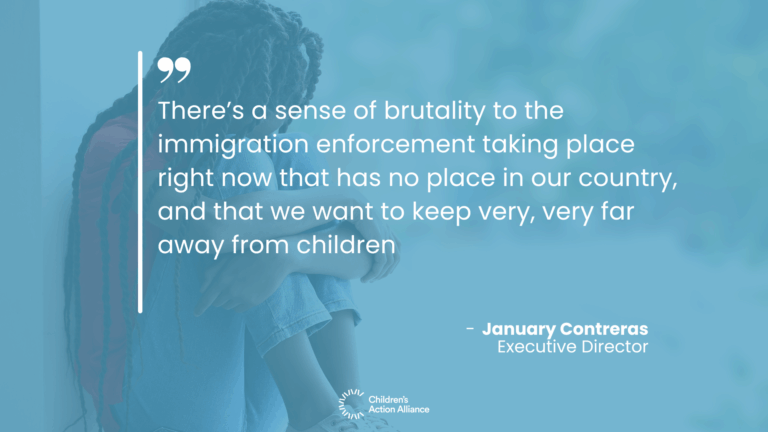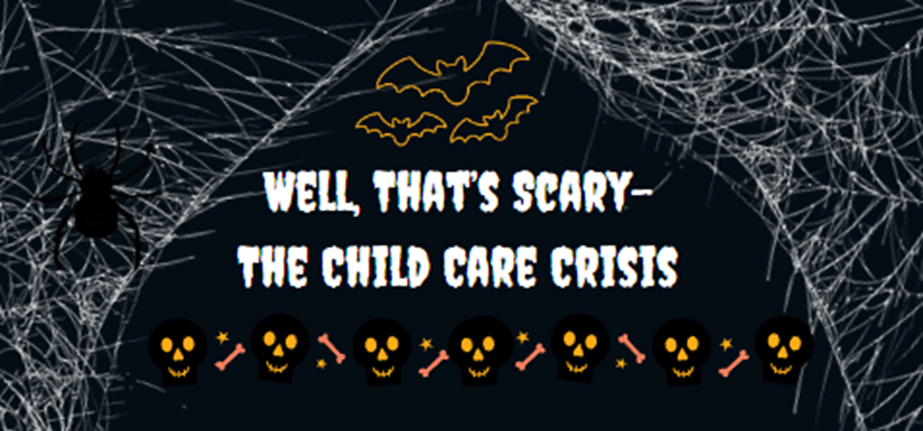
Well That's Scary- Child Care Crisis in Arizona
Research shows that it now costs more than $300,000 to raise a child from birth to age 18. It is no surprise that the cost of child care is a large part of those expenses, where, nationally, it costs $1,188 per month for center-based care for one child. In Arizona specifically, 61% of children under five have all available parents in the workforce. For dual-income households, roughly 13% of their income is dedicated to child care. The portion of income is much higher for single-income households, with over 36% of their income going to child care. This disproportionally impacts women, as 76.5% of single-parent households in Arizona were women in 2022.
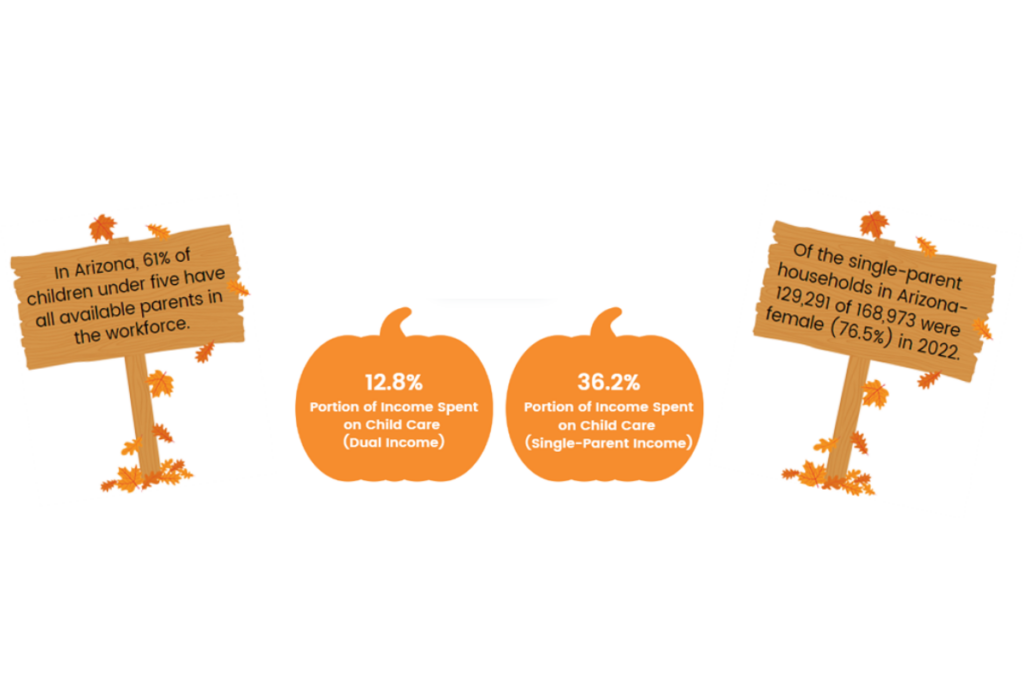
State Funding: A Small Treat, But More Investment Is Needed
Child care has lacked sustainable funding streams, which has impacted both access to and quality of care for children. The federal Child Care & Development Block Grant (CCDBG) is the primary federal grant program that allows states to provide child care assistance to low-income working families with children. In Arizona, 31% of children aged six and under are income-eligible for child care assistance, based on federal rules, on average each month. However, 88% of income-eligible children are left with no access to child care assistance due to insufficient funding.
Child Care Assistance: Eligibility Vs. Accessibility
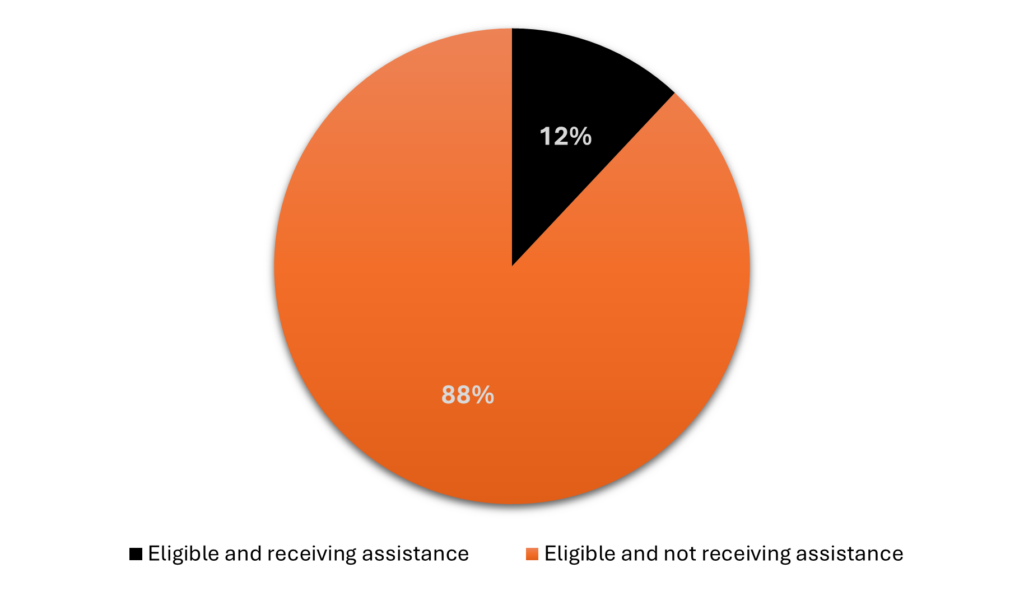
Here in Arizona, First Things First is the state’s only public funding source dedicated exclusively to early childhood, which includes child care solutions. The primary source of this funding is through a tax on tobacco products, yet tobacco revenue has been declining.
When it comes to state contributions, Governor Hobbs and the legislature delivered $12 million from the General Fund for child care assistance, which boosts family access and affordability, as well as network stabilization. This funding is an important milestone because it is the first General Fund allocation for child care services in more than a decade. However, the amount is significantly less than advocates identified as necessary and is only a one-time funding allocation. As a result, shortly after the passage of the state budget, the Department of Economic Security (DES) reinstated the child care waiting list on August 1, 2024. This waiting list is statutorily required when the demand for child care subsidies exceeds the available funding.
The Impact of the Waiting List: A True Horror Story
While there are a handful of exceptions for families that are not shut out by the child care assistance waiting list, such as families that are currently getting child care assistance, families who are referred for child care assistance from the Jobs program, and families who are referred from the Arizona Department of Child Safety or Tribal Child Welfare to DES for child care assistance; there are currently so many other families that need help with affording child care, but they are unable to get it.
In fact, DES estimates that about 5,200 children will be impacted by the reinstatement of the waiting list each month. This is not just bad news for families, as the waiting list also takes a toll on providers. Currently, there are over 22,000 children being cared for by a licensed provider. With the implementation of the waiting list, some local jurisdictions are assessing how this will affect children and families in their region. Pima County estimates that there will be a reduction of 1,959 child care subsidies and First Things First scholarships in their county. There is currently no solution on the horizon as the DES General Fund request includes an important investment of $57.7 million for FY 2026 to increase provider rates in Arizona to comply with federal requirements, but the request does not include funding to eliminate the waiting list.
Carving Out Priorities
Access to high-quality child care and early learning programs promotes positive outcomes for Arizona families while supporting children’s healthy development. Accessible child care allows parents to remain in the workforce and child care creates a strong foundation for a child’s future. However, the price and access to child care have presented challenges to Arizona’s hard-working families. Children’s Action Alliance, alongside partners throughout Arizona, continues to call on policymakers to prioritize accessibility, affordability, and equity by investing in child care for Arizona’s children and families.

